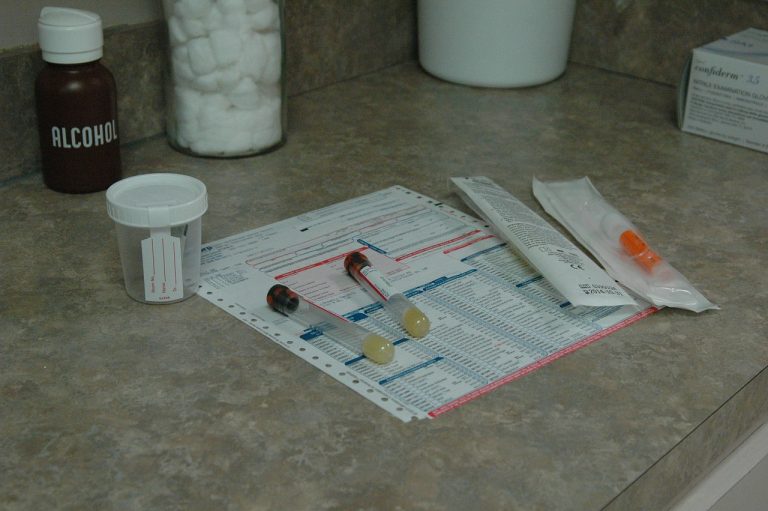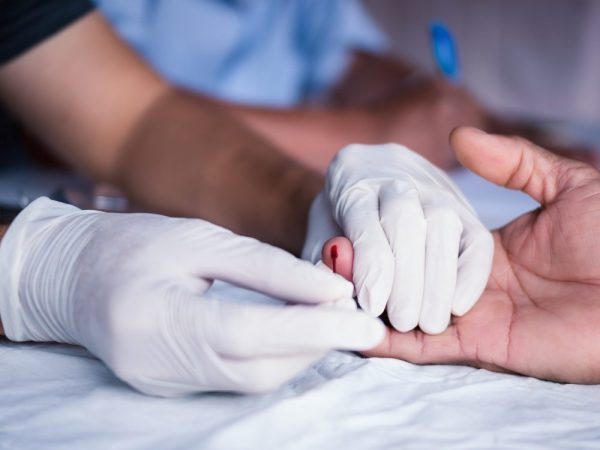
What happens when I get tested?
It can definitely be intimidating to go get tested for HIV and other sexually transmitted and blood-borne infections (STBBI), especially if you’ve never been tested before. Try to keep in mind that whatever happens, you are taking a step to be in control of your sexual health, and regardless of the diagnosis, you can still have a healthy sex life!
Types of Sexual Health Testing
Different STBBI require different methods of testing. Tests are performed one of three ways:
- Blood test
- Urine test
- Swab test

Blood test: A sample of blood is drawn and sent to an authorized lab for testing.
Urine test: A sample of urine is collected and is sent to an authorized lab for testing.
Swab test: Swab tests are done with a sterile cotton swab (Q-tip) that is sent to the lab for testing. Swabs may be taken from the vagina, cervix, penis, throat, anus or skin.
HIV Tests
There are 2 types of HIV tests currently available:
Standard test:
A small sample of blood is taken from your arm and sent to a lab.
Rapid test (or point-of-care test):
Your finger is pricked and the resulting drop of blood is tested at the clinic while you wait. If the test is reactive, then a standard blood test is done to confirm the result. However, not all testing sites offer rapid testing. For more information, look at our POCT page.
HIV testing requires informed consent. You cannot be tested without stating that you agree to it.

What does an HIV test look for?
When a person contracts HIV, over time antibodies are produced by the body in response to the infection. In addition, antigens (proteins on the surface of the virus) cause an immune response in the person’s body.
- An antibody test looks for the body’s response to the HIV virus.
- An antibody/antigen (also known as a combined or fourth generation test) test looks for both the body’s response to the HIV virus and signs of the virus itself.
Confidentiality of HIV Testing
There are various levels of confidentiality you can request during your HIV test:
Nominal:
- The most common mode of testing
- The full name of the person being tested is used at all stages of the testing process
Non-nominal (“Coded” or “Confidential”):
- The test location staff (doctor/nurse) know the person’s identity, but use a code for the HIV lab test requisition
- The HIV lab facility does not have the person’s name
- Only the test results and any demographic information provided (age/sex/exposure category) are given to the public health authority
Anonymous
- Specially designated clinics use codes to carry out testing
- No identifying information is collected or recorded
- Information on age/sex/exposure category can be recorded
For more information on the HIV testing process check out CATIE.
